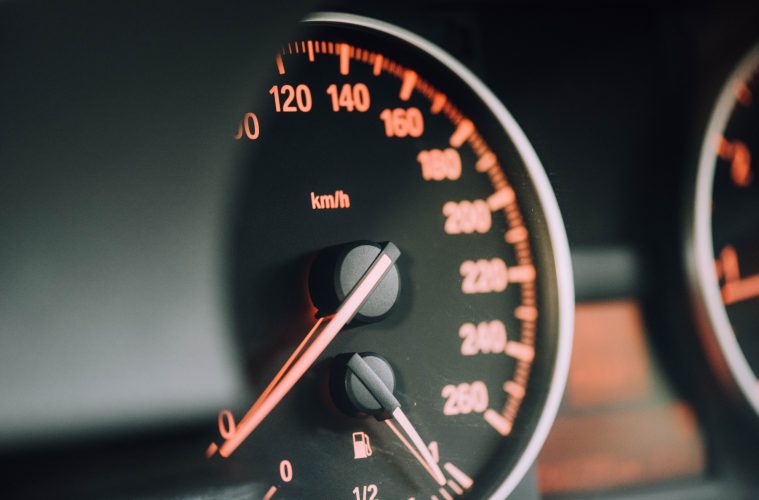Has your car engine started shaking all of a sudden? It’s important to address the issue as soon as possible for safety reasons and to avoid road accidents.

Such incidents can be alarming and unnerving, but there are common reasons why they occur.
Common Reasons for an Engine To Shake
There are multiple reasons why your engine may have started vibrating out of the blue. Here’s a list of common reasons as to why your engine might shake or vibrate.
Engine Misfire
Your vehicle’s engine requires three essential components to run, the air/fuel mixture, compression, and the spark of electricity that’s needed for combustion.
These three components need to do their job at the right time and in the right quantity. Additionally, they should also be sealed properly to create just the right compression. When one or more of these components are missing, it can lead to an engine misfire which can cause noticeable shakes and vibrations.
Sometimes replacing worn-out spark plugs can solve the issue. However, this isn’t always the case so get your car checked by a mechanic to fix issues related to an engine misfire.
Poor Motor Mount
Motor mounts support the engine and keep your engine attached to your car. These mounts have a rubber center that isolates the rest of the vehicle from engine vibrations.
Poor motor mounts don’t deliver sufficient support to the engine and may be one of the reasons why you hear a clunking sound when you accelerate or decelerate.
While you may be able to locate the motor mounts, you may not be able to access them yourself. Because you need to support the engine while replacing your mounts, it’s best to leave the repair work to experienced mechanics.
Improper Timing Belt
Belt-driven accessories in your vehicle are a common cause that leads to excessive engine vibration. When they’re loose or damaged, they can cause the components attached and/or controlled by the belt to malfunction.
For example, when the timing belt is compromised, fans and other parts don’t turn at consistent speeds or have issues with rotation, leading to strange sounds and vibrations from the engine of your vehicle.
Inspect the belts of your vehicle and replace them if they’re beyond repair. In the future, you can regularly inspect them for cracks and ribbing to ensure they’re in prime working condition.
Faulty Fuel Intake System
A poorly adjusted or faulty fuel intake system can cause engine vibration. Your vehicle’s fuel intake system can get clogged which can lead to uneven amounts of fuel being delivered to the engine.
Small fixes such as adjusting the idle on a carburetor can work wonders. Sometimes, something as basic as cleaning the components of the fuel intake system can help clear the obstruction and enable more efficient combustion of your car’s engine.

Worn-Out Spark Plugs
One of the most common causes of engine vibration is faulty spark plugs. If your spark plugs are worn out or dirty, it can cause your car’s engine to misfire. Sometimes, it might not even fire on every cylinder or create the spark your engine needs to ignite the fuel.
You can rectify this situation by investing in new spark plugs, or if the problem can be remedied, correct compression-related issues.
Worn Transmission Mounts
Does your vehicle shake violently when parked while the engine is running? This could be because its transmission or motor mounts are either damaged or broken.
These mounts serve the same purpose as the ones found on the engine. They dampen vibrations and provide support. Since the engine and transmission are bolted together, worn-out transmission mounts can lead to excessive vibration in the engine.
If the transmission shifts and twists to a great extent, it may even damage other components, magnifying the repairs you’ll need. Have a professional mechanic inspect your vehicle and repair any mount-related issues that may occur.
Loose or Disconnected Hoses
All cars have vacuum hoses that connect to different parts of the vehicle and work towards clearing the by-products of the gas, or exhaust fumes, as they’re popularly called.
Loose or disconnected hoses, both air, and vacuum can cause intense and violent shaking in your car’s engine. They can also lead to your engine misfiring, losing power, or in the worst-case scenario, shut down completely. To take care of the issue, reattach or replace the disconnected or loose hoses as required.
What Should You Do if Your Engine Is Shaking?
A shaking engine is definitely a cause for concern. As soon as your engine starts shaking, it would be wise to locate the root cause and find a solution ASAP. The longer you wait, the more you risk damaging other parts in the process.
If you aren’t able to quickly and effectively address the root cause, it can damage your engine considerably.
It’s thus best to get your car looked at by a professional so you can solve the issue quickly and get your car back on the road safely. This will relieve you of the possibility of getting stranded on the side of the road due and paying huge bills for repair work later.
Final Thoughts
Knowing the possible reasons that can cause an engine to shake will not only save you money at the mechanic, it will also keep you safe and help you avoid stress and worry about the damage your engine may be sustaining.
Act quickly and invest in car insurance while you’re at it. Continuing to observe your car closely for possible issues will save you from a bigger headache down the road.


